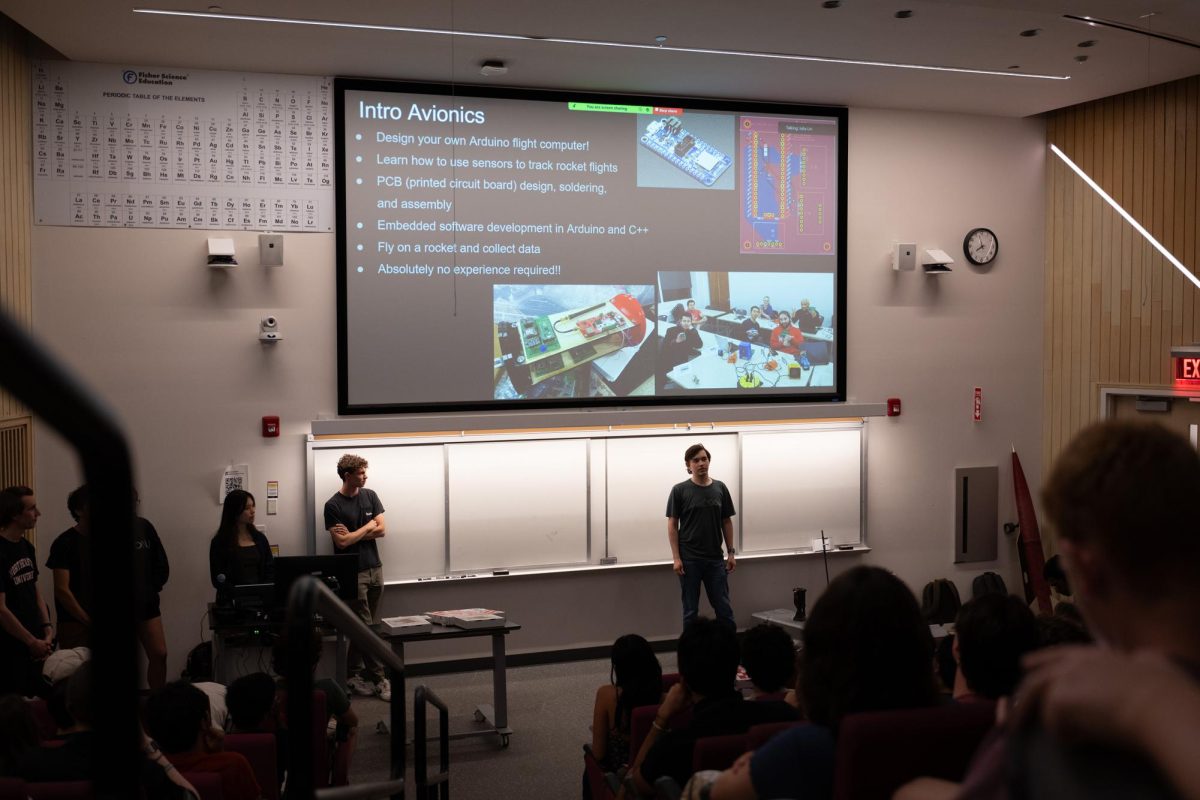“You Can’t Take it With You,” the latest play being performed at the Studio Theatre, presents a refreshing mix of wholesome humor, fine acting and laughably old-fashioned values.
The Pulitzer Prize-winning play pulls viewers into a strangely upbeat depression-era New York. Swing music emanates from the rafters, and an impressive 3-D set of a furnished house sits on stage.
Written in 1938 by Moss Hart and George Kaufman, and directed by Del Lewis, the play served as a humorous escape during the Great Depression.
The play begins with a family interacting, its members appearing in succession on stage. They are an “unconventional” family, not as individuals but as a whole. Some of their peculiar quirks include that the mother has been attempting screenwriting for eight years; the older sister, Essie, twirls and pirouettes around the stage in a tutu as her young husband, Ed, taps at a xylophone; the grandfather collects snakes; and Paul, the father, comes out of the basement after setting off fireworks.
The antics continue from there, introducing characters unrelated to the family, like Mr. Kolenkhov, Essie’s rambunctious and impressively hilarious Russian dance teacher.
The plot of the play rests on the second daughter, Alice, and her engagement to Tony Kirby. The story line may seem fairly worn out, yet it’s the first fictional account of someone bringing their love interest home to meet their family and everything going awry.
Tony’s family is rich, whereas Alice’s is lovably eccentric and misunderstood. They clash when Tony’s uptight family arrives for dinner on the wrong night. Overall, the play drives attention away from the couple, and their rift takes a backseat to the amusement present in the family’s antics.
Despite the seemingly exhausted plotline, the interactions between the relatives and their various guests preserve the play as both enjoyable and novel to audiences. The actors impress with their comfort in using 1930s dialogue and their ease in interacting with each other.
Some may worry the play will be outdated and dry even humorous, perhaps, in it’s softened values. Yet it’s these values that motivated director Lewis to bring “You Can’t Take it With You” to Northeastern.
“It’s wholesome,” Lewis said. “We can use a little bit of that once in a while.”
Freshman English major Ben Rosenbaum said he appreciated the play’s older themes.
“The time period just takes you away from your everyday problems,” he said. “It doesn’t ask a lot of you.”
More evidence of the play’s antiquity is seen in the role of the servants, Donald and Rheba, who were originally written into the script as black.
In this production, the parts were changed to white actors performing with Irish accents. Lewis said the change was made both because no black people auditioned, and because the original parts seemed “kind of derogatory.”
The play can be seen as outdated for our generation: the whole family – including the married daughter, the grandfather and the servants – lives under the same roof, and tends to regard each other with an affection reminiscent of ’50s sitcoms.
But in this age of sensationalist gossip and scandal, the winning innocence of “You Can’t Take it With You” proves that old fashioned family affairs can still garner a laugh, or in this case, many laughs.
“You Can’t Take It With You” is playing at the Studio Theatre now through Saturday and again Nov. 13 through Nov. 17 at 8 p.m., and will be translated to American sign language Nov. 14 through Nov. 16.









